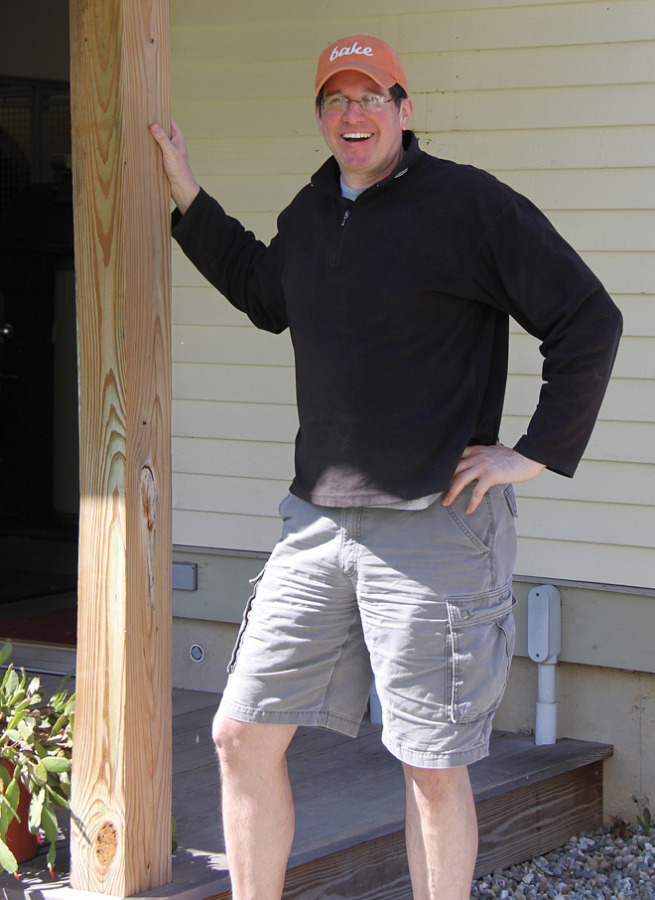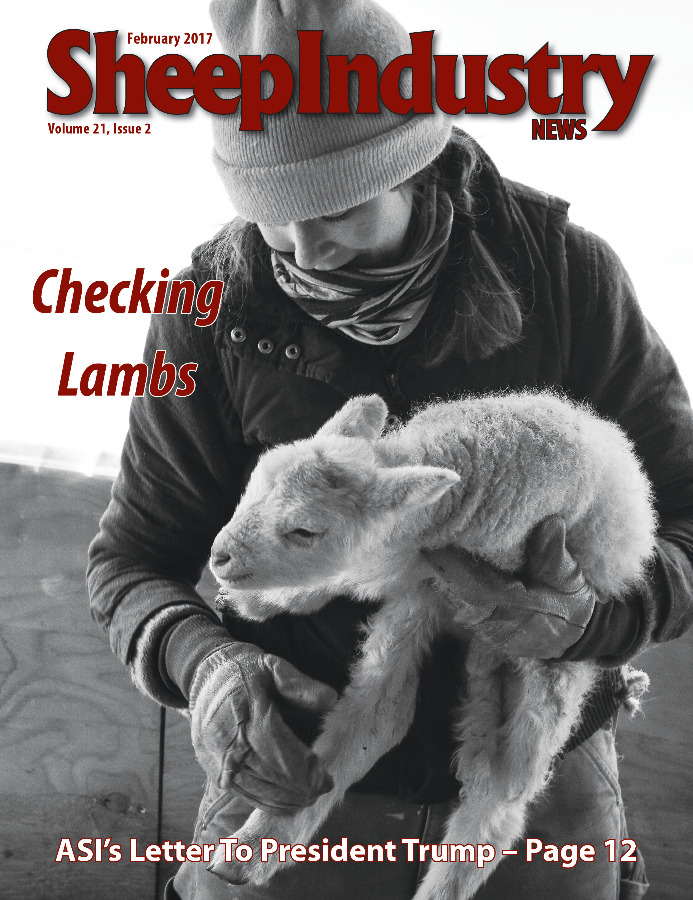The Last Word

Making the Most of a Second Career
Kyle Partain
Sheep Industry News Editor
 Michael Hampton opened the doors at Hampton Fiber Mill shortly after many of Vermont’s sheep producers had finished shearing in 2010. He’d reached out to 75 people – using email addresses he “pilfered” from online sources – and two weeks after flipping the switch on his second career, he went to work on three fleeces.
Michael Hampton opened the doors at Hampton Fiber Mill shortly after many of Vermont’s sheep producers had finished shearing in 2010. He’d reached out to 75 people – using email addresses he “pilfered” from online sources – and two weeks after flipping the switch on his second career, he went to work on three fleeces.
“I don’t think the ladies realized at the time that they were my first customers,” he recalls. “But I made some beautiful yarn for them and they’ve been coming back every year since. Before I could finish their order, the phone rang again and I haven’t been completely caught up since.”
The mill – based in what appears to be a large garage next to Michael’s Richmond, Vt., home – fills a void in the Vermont sheep industry. In a state where most producers have 25 sheep or less, there was a need for someone who could handle small orders. While he doesn’t keep a close count on totals, Michael estimates he’ll handle between 3,000 and 4,000 pounds of wool each year.
“That’s nothing, really. I realize that I’m a small part of the industry, but I’m happy with that,” he says. “What I like the most is that my customers are so excited to get their stuff back.”
An engineer by trade, Michael spent the last several years of his first career working in the petrochemical business. He’d settled in Vermont, but was commuting frequently to Texas for work. He hated the commute, wasn’t too fond of the people he worked for and often wished he could just sit in his living room and knit. One day, he decided that’s what he would do.
“I had intentionally not taken a salary from my business for an entire year, so I had a pretty fair nest egg,” he says. “I transferred it all into the equipment for the mill. I wrote a check for a $150,000 deposit on the equipment to a guy in North Carolina who I’d known for all of an hour. That was a tough check to write, but I knew this was what I wanted to do.”
It took a year for Carolina Specialty Inc. to deliver the equipment needed to get the mill up and running. That equipment includes a picker, worsted carder, pin-drafter, spin/twist frame and a skein winder. Given his engineering background, Michael talks about the mechanics of each machine in a way that I’ll never fully understand. He throws around mathematical formulas involved in producing quality, consistent yarn that will make your head spin.
Of course, it all started with a pair of knitting needles. Michael and his sister were left with their great aunt during the day before they were old enough to attend school. She taught the pair to knit, using their competitive instincts to keep them busy for good portions of the day as they worked to see who could knit faster, longer, better, etc.
“I still knit every day,” says Michael, who has also been heavily involved with the Vermont Sheep and Goat Association in recent years. “I came to this from the fiber end, not the livestock end. I’m still not comfortable around sheep or any kind of livestock. I just love the fiber side, so it was a natural fit for me.”
A one-man shop, Michael doesn’t have to worry about employees when deciding his schedule each day.
“This is what I want to do most days,” he says. “On the days it isn’t what I want to do, I just turn out the lights and go do something else. That’s a luxury a lot of people don’t have in life, and I’m pretty thankful for it.”


